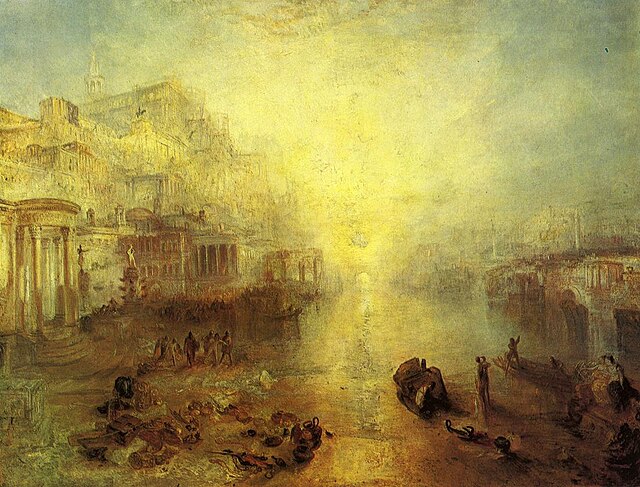Baucis and Philemon are two characters from Greek mythology, only known to us from Ovid's Metamorphoses. Baucis and Philemon were an old married couple in the region of Tyana, which Ovid places in Phrygia, and the only ones in their town to welcome disguised gods Zeus and Hermes, thus embodying the pious exercise of hospitality, the ritualized guest-friendship termed xenia, or theoxenia when a god was involved.
Jacob van Oost Mercury and Jupiter in the House of Philemon and Baucis
Jupiter and Mercury in the house of Philemon and Baucis, Adam Elsheimer, c1608, Dresden
Rubens, 1630–32
Jean-Bernard Restout, 1769
Publius Ovidius Naso, known in English as Ovid, was a Roman poet who lived during the reign of Augustus. He was a younger contemporary of Virgil and Horace, with whom he is often ranked as one of the three canonical poets of Latin literature. The Imperial scholar Quintilian considered him the last of the Latin love elegists. Although Ovid enjoyed enormous popularity during his lifetime, the emperor Augustus exiled him to Tomis, the capital of the newly-organised province of Moesia, on the Black Sea, where he remained for the last nine or ten years of his life. Ovid himself attributed his banishment to a "poem and a mistake", but his reluctance to disclose specifics has resulted in much speculation among scholars.
Anonymous 18th-century engraving
Statue of Ovid by Ettore Ferrari in the Piazza XX Settembre, Sulmona, Italy
Ovid Banished from Rome (1838), by J.M.W. Turner
Medea in a fresco from Herculaneum








